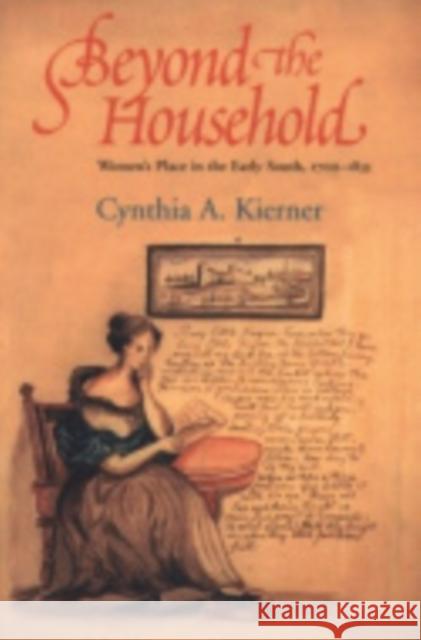Beyond the Household: Women's Place in the Early South, 1700 1835 » książka
Beyond the Household: Women's Place in the Early South, 1700 1835
ISBN-13: 9780801484629 / Angielski / Miękka / 1998 / 320 str.
Beyond the Household: Women's Place in the Early South, 1700 1835
ISBN-13: 9780801484629 / Angielski / Miękka / 1998 / 320 str.
(netto: 167,24 VAT: 5%)
Najniższa cena z 30 dni: 125,48
ok. 30 dni roboczych.
Darmowa dostawa!
Much has been written about the "southern lady," that pervasive and enduring icon of antebellum regional identity. But how did the lady get on her pedestal and were the lives of white southern women always so different from those of their northern contemporaries? In her ambitious new book, Cynthia A. Kierner charts the evolution of the lives of white southern women through the colonial, revolutionary, and early republican eras. Using the lady on her pedestal as the end rather than the beginning of her story, she shows how gentility, republican political ideals, and evangelical religion successively altered southern gender ideals and thereby forced women to reshape their public roles. Kierner concludes that southern women continually renegotiated their access to the public sphere and that even the emergence of the frail and submissive lady as icon did not obliterate women's public role.Kierner draws on a strong overall command of early American and women's history and adds to it research in letters, diaries, newspapers, secular and religious periodicals, travelers' accounts, etiquette manuals, and cookery books. Focusing on the issues of work, education, and access to the public sphere, she explores the evolution of southern gender ideals in an important transitional era. Specifically, she asks what kinds of changes occurred in women's relation to the public sphere from 1700 to 1835. In answering this major question, she makes important links and comparisons, across both time and region, and creates a chronology of social and intellectual change that addresses many key questions in the history of women, the South, and early America."











